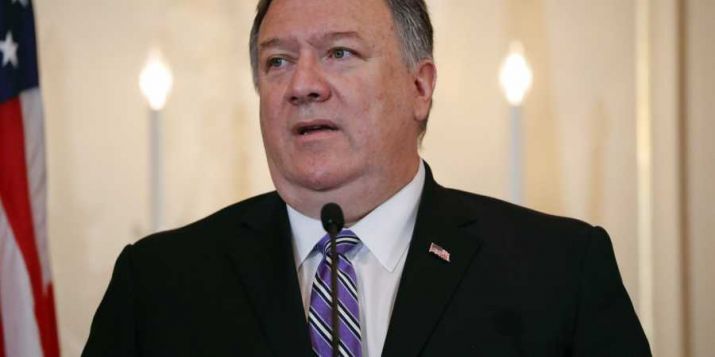Israel thanks US for decision on West Bank settlements
The US decision on Israel's West Bank settlements represents the latest move by the Trump administration to take sides with Israel, following its widely criticized recognition of Jerusalem as Israel's capital in 2017, relocation of the US embassy to Jerusalem in 2018, and recognition of Israel's "sovereignty" over disputed Golan Heights in March 2019.

Israel has thanked US President Donald Trump's administration for its decision that the American government would no longer consider the West Bank Jewish settlements "inconsistent" with the international law. "Israel is deeply grateful to President (Donald) Trump, Secretary (Mike) Pompeo and the entire US administration for their steadfast position supporting truth and justice," Xinhua news agency reported citing a statement issued by Israeli Prime Minister's Office as saying on Monday night.
While calling on countries to adopt a similar position to facilitate peace in the Middle East, Israel said in its statement that it remains "ready and willing to conduct peace negotiations with the Palestinians regarding all final status issues in an effort to achieve lasting peace".
On Monday, US Secretary of State Mike Pompeo announced the new decision which reversed Washington's position on the issue in the past four decades.
Pompeo repudiated a 1978 State Department legal opinion that held that civilian settlements in the occupied territories are "inconsistent with international law".
He noted, however, that this announcement should not be viewed as the US government "addressing or prejudging the ultimate status of the West Bank".
"This is for the Israelis and the Palestinians to negotiate."
In response to the announcement, Israeli Prime Minister Benjamin Netanyahu said: "This policy reflects a historical truth - that the Jewish people are not foreign colonialists in Judea and Samaria." He referred to the West Bank by its biblical name, reports The Times of Israel.
However, the decision has angered Palestinians.
Palestinian Authority President Mahmoud Abbas' spokesman, Nabil Abu Rdeneh, condemned Pompeo's announcement and said settlements were illegal under international law.
"The US administration has lost its credibility to play any future role in the peace process," he said.
The US decision on Israel's West Bank settlements represents the latest move by the Trump administration to take sides with Israel, following its widely criticized recognition of Jerusalem as Israel's capital in 2017, relocation of the US embassy to Jerusalem in 2018, and recognition of Israel's "sovereignty" over disputed Golan Heights in March 2019.
This policy shift is also seen as a political gift for Netanyahu, who is fighting for political survival after being unable to form a coalition government following two elections this year and facing legal issues.
The last round of peace talks between the Israelis and the Palestinians collapsed in 2014, mainly over Israel's continuing expansion of its settlements in the West Bank.
UN Special Coordinator for the Middle East Peace Process Nickolay Mladenov said last month that Israeli settlements on the occupied Palestinian territories are illegal under international law and remain a substantial obstacle to peace.
According to the latest Palestinian data, around 400,000 Israeli settlers live in 135 settlements and 100 illegal outposts in the West Bank, where the Palestinian population has reached 2.6 million.
ALSO READ: Over 10 million Afghans suffer acute food insecurity: UN